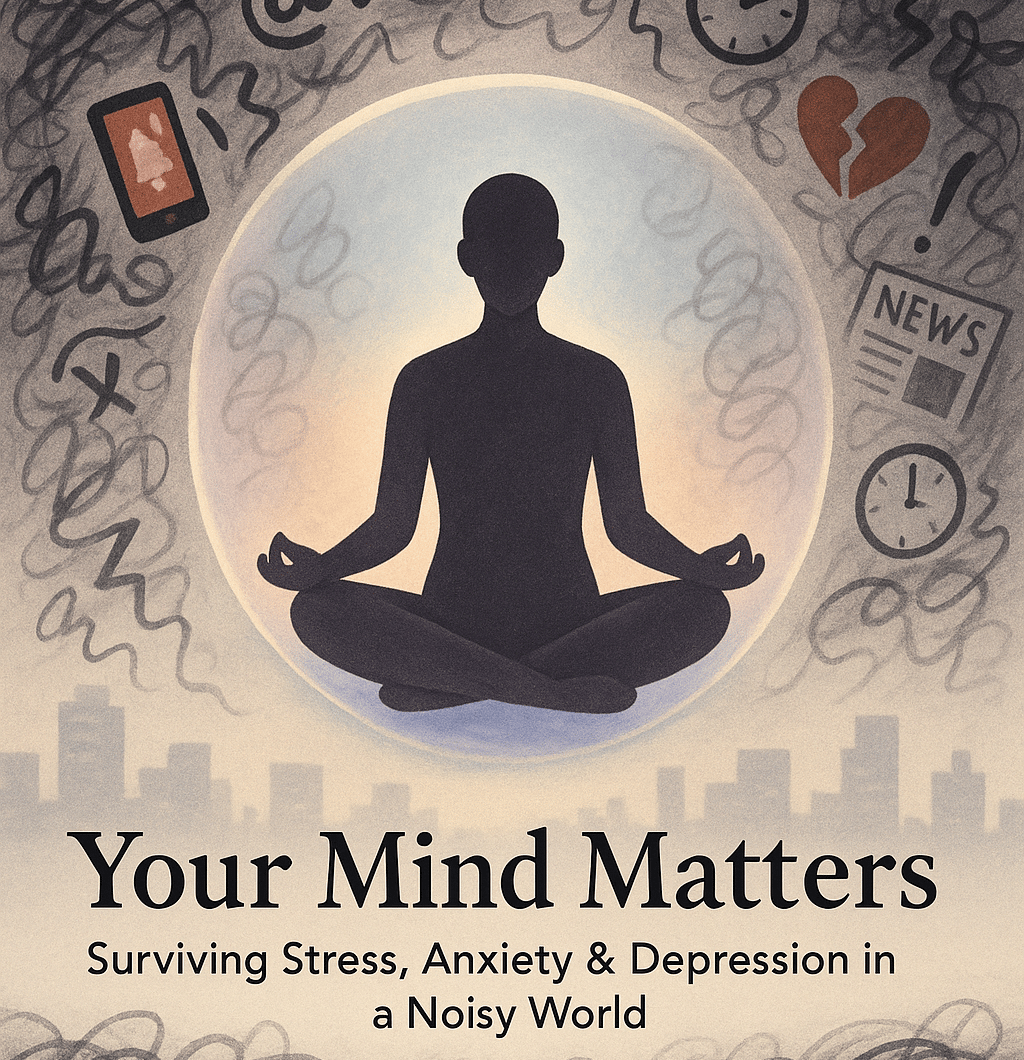Struggling with Stress, Anxiety, or Depression? Powerful Self-Care and Mental Health Tips
In today’s fast-paced world, millions struggle with stress, anxiety, and depression. This guide explores practical self-care tips, simple stress management techniques, and the importance of mental health awareness. Learn how to build resilience, practice mindfulness, and find the right mental health support to strengthen both body and mind.
MOTIVATION


In today’s fast-paced world, life often seems to move faster than we can handle. There’s constant pressure to perform at work, to stay available and connected online, and to always project an image of strength and success. Beneath the surface, however, millions of people silently face something deeper: stress, anxiety, and depression.
These challenges are not just passing emotions or buzzwords — they are real mental health struggles that affect daily life. According to the World Health Organization, nearly 1 in 8 people worldwide live with some form of mental disorder. For many, the hardest part is acknowledging that what they’re experiencing is valid, normal, and nothing to be ashamed of.
If you’re going through any of this, the most important truth to remember is this: you’re not alone and you’re not weak. Mental health struggles are part of being human. And importantly, there are ways to manage, heal, and grow beyond them.
Recognizing What You’re Feeling
The first step toward mental health awareness is acknowledging your emotions. Understanding the difference between stress, anxiety, and depression helps give you clarity and control.
Stress is not just about deadlines or busy schedules — it’s the emotional and physical weight of ongoing demands that overwhelm you.
Anxiety goes beyond occasional worry. It is the lingering sense of unease or fear, even when no immediate threat exists.
Depression is more than sadness. It creates a lasting emptiness, disconnection, and sometimes a numbness that makes daily life feel heavy.
Naming what you feel is powerful. It helps you realize you’re dealing with a mental health challenge — not a personal failure. This awareness allows you to begin building coping mechanisms instead of struggling silently.
Small Acts of Self-Care Make a Big Difference
One of the most effective ways to support your mental wellbeing is through consistent self-care practices. And importantly, self-care doesn’t mean luxury retreats or expensive spa days. It begins with small, intentional daily actions that nurture your mind and body.
Here are a few simple yet powerful stress management tips:
Give yourself 10 minutes of quiet each day — no phone, no distractions.
Practice journaling by writing down thoughts without judgment.
Drink plenty of water and take mindful breaks between tasks.
Step outside, even briefly, to connect with sunlight and fresh air.
When done consistently, these acts create pockets of calm within daily chaos, reminding you that you matter.
Learn to Breathe Again
Your breath is one of the most powerful (and free) tools for regaining calm. During moments of stress or anxiety, our breathing becomes shallow, triggering the body’s fight-or-flight response.
A proven practice is the 4-7-8 breathing technique:
Inhale deeply for 4 seconds
Hold your breath for 7 seconds
Exhale fully for 8 seconds
Repeat two to three times. This relaxes the nervous system and reduces immediate symptoms of anxiety. Over time, it strengthens resilience against stress.
Don’t Isolate Yourself
Depression and anxiety often trick us into believing we’re a burden on others. This leads to withdrawal, which only worsens feelings of loneliness. In reality, connection is part of the cure.
You don’t need to share everything or have a deep conversation. Sometimes sending a simple text like “I’m having a rough day” can open the door to support. Whether through friends, family, or peer support groups, being seen and heard can reduce the weight you’re carrying.
Be Mindful of Your Digital Diet
What we consume affects our mental state — not just food, but also digital content. Social media can distort reality and heighten stress through comparison. Everyone else’s life appears perfect, while you feel like you’re falling short.
Practical tips for digital wellbeing:
Unfollow accounts that hurt your self-esteem.
Limit doom scrolling and negative news consumption.
Take scheduled breaks from apps and spend time offline.
Remember: online highlight reels are not real life. In the physical world, imperfections are not only normal but human.
Fuel Your Body, Support Your Mind
There is a strong connection between physical health and mental health. The mind and body influence each other in powerful ways.
Eat balanced meals with protein, whole grains, and fruits/vegetables.
Stay hydrated throughout the day.
Move your body — even light exercise like walking positively impacts mood.
Get enough sunlight; vitamin D deficiency is linked to depression.
Taking care of your body is not luxury wellness — it’s a fundamental pillar of mental resilience.
Ask for Help — It’s Strength, Not Weakness
Despite progress, stigma around therapy still lingers. But reaching out for professional help is one of the bravest and most effective steps you can take for recovery.
Therapists and counselors provide tools to understand and process emotions. They help create personalized coping strategies.
Options include:
Licensed therapists and clinical psychologists
University-based counseling centers
Affordable online therapy platforms
Mental health helplines and community resources
Remember: you don’t have to do this alone. Seeking help shows courage, not weakness.
This Is a Chapter, Not Your Whole Story
One of the hardest parts of mental health struggles is the feeling that they’ll last forever. But emotions are temporary, and healing is gradual. No matter how heavy life feels right now, this is only a chapter — not your entire story.
Recovery may not be linear. There will be ups and downs. But with self-care, support, and professional guidance, you can move forward. And importantly, you will not always feel this way.
Final Thoughts: You Matter
In a world full of noise and pressure, it’s easy to lose sight of your worth. But here’s the truth: you are not broken, you are not alone, and you are more resilient than you realize.
Be gentle with yourself.
Show up in small, intentional ways each day.
Reach out when you need to talk.
Take life one step, one hour, and one day at a time.
